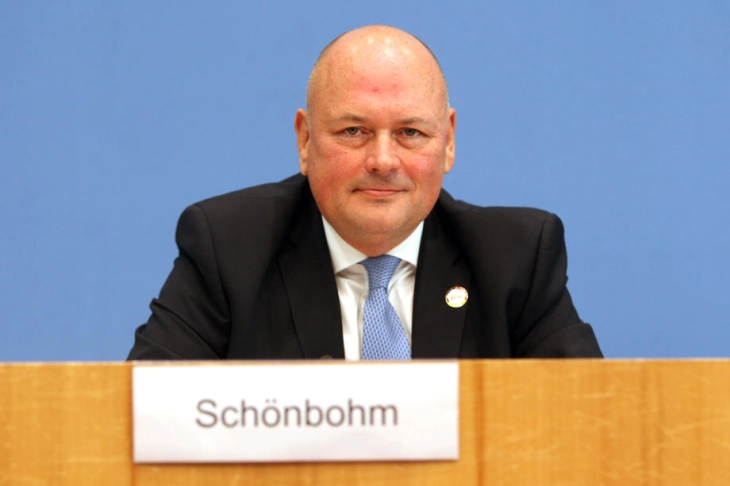German cybersecurity chief sacked amid concerns of links to Russia

Berlin, 18 October 2022 (dpa/MIA) - The chief of Germany's main cybersecurity authority, Arne Schönbohm, got the sack on Tuesday because of his ties to a group which has been linked to Russian intelligence circles.
Schönbohm, who led the Federal Office for Information Security (BSI), has been under fire for his connection to an association called Cyber Security Council Germany, which itself has been criticized for being linked to Russian intelligence circles.
German Interior Minister Nancy Faeser made the call on Tuesday.
Schönbohm, 53, had been president of the BSI since February 2016. He was dismissed on Tuesday "with immediate effect," the Interior Ministry said.
The government's top cybersecurity expert was accused of having taken lightly repeated criticism of his continued contacts with Cyber Security Council Germany, an association which he himself set up 10 years ago.
The reported accusations against Schönbohm had "permanently damaged the necessary trust of the public in the neutrality and impartiality of the leadership of the president of the most important German cybersecurity authority," according to the ministry statement.
This trust was all the more important given how Russia was carrying out hybrid warfare during the war in Ukraine, the ministry said.
Having said that, the ministry said it would "thoroughly investigate all known accusations."
According to dpa sources, Faeser had been annoyed by Schönbohm's continued contact with the Cyber Security Council Germany.
The fact that Schönbohm's links to the association had been widely reported in the German press recently was named as a contributing factor in her decision. The reports had permanently damaged the public's trust in the country's most important cybersecurity official.
The focus of criticism has been on Berlin-based cybersecurity firm Protelion, which was a member of the Cyber Security Council until last week, when it had its membership revoked.
Until the end of March, Protelion went by the name of Infotecs and was a subsidiary to its Russian namesake, which is reported to have been set up by a former member of the Russian intelligence services.
It is not clear if there are any allegations of wrongdoing, or if Schönbohm's affiliations with the group were enough to warrant his termination.
The Interior Ministry said the decision had been taken in the interests of the BSI's staff of 1,500 and that all the allegations would be thoroughly investigated. Schönbohm would have the benefit of the doubt until this was complete, it said.
Cyber Security Council head Hans-Wilhelm Dünn has characterized allegations that the association as a whole is under the influence of Russian interests as "absurd."
The Interior Ministry has not decided who will succeed Schönbohm.
The security policy spokesperson for the Greens in the Bundestag, Sara Nanni, tweeted that Schönbohm's ouster was a "good decision".
Manuel Höferlin, spokesman for the liberal FDP, the third party in the coalition, warned that a vacancy at the top of the country's cybersecurity authority should not lead to paralysis in light of "current attacks on our critical infrastructure and the great danger from Russia."
He was referring to unexplained sabotage on the rail network earlier this month.
The opposition CDU charged that Schönbohm had been made into a fall guy.







